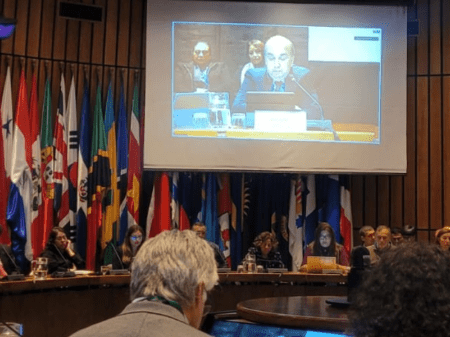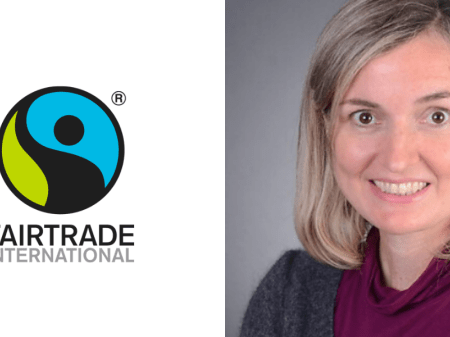
Over 200 participants attended the online launch of a new report, The Opportunities and Benefits of Collective Ownership, by the International Cooperative Entrepreneurship Think Tank (ICETT), on 10 June.
The webinar provided an opportunity for peer learning and global exchange, with insights from ICA leadership and cooperative pioneers. Introducing the report, ICA Director General, Jeroen Douglas, described it as “a milestone publication”.
“I believe that this report offers tangible tools for cooperatives to better communicate their impact and leverage their identity for both visibility and competitive advantage,” he said.
Prof Hans Groeneveld, former Chair of ICETT, gave a keynote speech on the report’s topic, explaining why it is relevant to the cooperative movement and how its template could be used by cooperatives worldwide to show how they are benefiting their members and the wider community.
“Benefits are crucial for a strong cooperative identity. And a strong cooperative identity will result in a distinctive appreciation, perception, behaviour, and reputation of every cooperative society, and this will, in turn, automatically lead to members, customers, society, experiencing the global difference,” he said.
Thomas Blondeel, the current Chair of ICETT and International Advocacy officer at SmartCoop in Belgium, also highlighted the importance of this report, explaining how Smart had contributed to it.
“It allowed us to pinpoint where we contribute as a cooperative to societal challenges, and to advocate more specifically for adaptive regulations or solutions like innovative ways of organising work, for instance,” he said.
The webinar also included presentations by some of the cooperatives featured in the report. Rudi Klijwegt from Rabobank, in the Netherlands, highlighted some of the benefits mentioned in the report, such as democratic member control through local supervisory board members, members’ councils, and a General Assembly, or the distribution of funding towards local causes chosen by members.
Michael Mugo from CIC Group in Kenya described how the insurance cooperative group supports over 7,000 agents and brokers and has a customer satisfaction index of 86%. Member benefits include training for cooperative leaders, scholarships, and support for the launch of new cooperatives. As to society benefits, CIC Group has set ambitious targets to reduce waste diverted to landfill by 25% and greenhouse gas emissions by 30%.
Michelle Schry from the National Co-Op Grocers (NCG Co-op) in the USA, explained how her organisation is helping local co-ops optimise resources and increase their competitive presence in the food industry. The cooperative supports local communities as well by running a Retail Ready Lab to help vendors bring their products to the market or helping members realise their goals through its advocacy work.
The webinar also heard from Santosh Shukla, General Manager of the Indian Farmers Fertilisers Cooperative (IFFCO) in India. IFFCO’s member benefits include providing 20% dividends to member cooperatives, distributing over 1,700 drones to farmers and providing hands-on training in farming techniques and innovative technology, providing support during natural calamities, offering medical support to rural farmers, and giving scholarships to farmers’ children.
Jungsik Jung, National Agriculture Cooperative Federation (NACF) in South Korea, shared how Korean agri co-ops support members and rural communities. Initiatives include helping cooperatives reduce costs and increase income for members through effective purchasing, lowering interest rates, offering education programmes, supporting members in disaster recovery, and providing mobile medical services. NACF estimates it provides over €2,200 per member benefit a year.
Merav Niv from the Kibbutz Movement in Israel explained how the apex operates as a sustainable, multi-generational, member-oriented community business organisation, focusing on both social and economic impacts on their neighbourhood. The kibbutzim provide homes for people at risk, those with disabilities, new immigrants, and refugees, and aim for innovation in both economic and social sectors, she said.
Howard Brodsky, chair of CCA Global and representative of Principle Six, a new digital platform for cooperatives, talked about the contribution of both organisations he is representing. CCA is a purchasing cooperative serving family businesses in North America, providing marketing, buying, training, and childcare services. He also described Principle Six as a digital platform for cooperatives, owned by cooperatives, aiming to strengthen collaboration and collective benefits.
Another initiative aiming to bring cooperatives together to collaborate and share learnings is the Arizmendiarrieta Social Economy Think Tank (ASETT), a social economy hub promoting social economy practices and influencing policy making. ASETT is organised into three pillars - a think tank, a foresight Institute, and a social lab, said Ibon Zugasti, International Project Manager at LKS Cooperative, the Management Consulting Division of Mondragon Corporation.
Bringing the webinar to a close, Mr Blondeel said the launch of the report was a call to action and encouraged participants to engage with ICETT to help identify common interest cooperative elements that need further promotion.
The ICA’s Director of Policy, Joseph Njuguna, also called on participants to engage further on this topic. He said they can reach out to ICETT via ICETT@ica.coop or through him (njuguna@ica.coop) to learn more about the think tank and how they can be involved in this and future topics.
The ICETT report is available here.
The recording for the webinar can be found here: https://youtu.be/JxEdDcy1uew
Photo: ICETT Chair Thomas Blondeel




